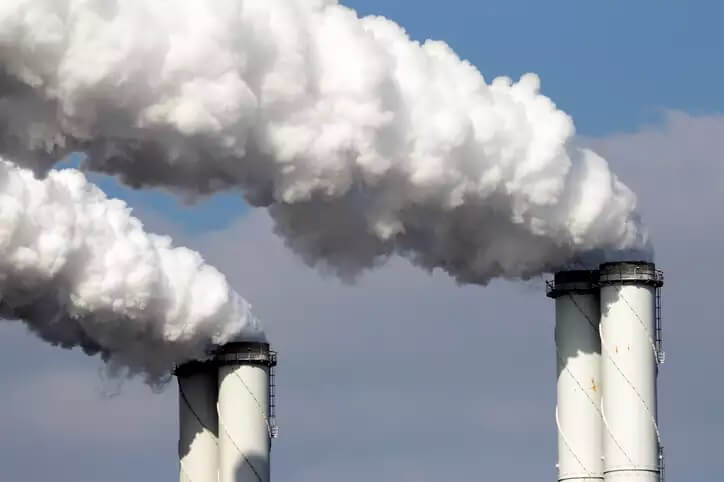Subscripe to be the first to know about our updates!

The Ideology and Reality of Carbon Capture Utilization and Storage
Philip Rosetti & Robert G. Eccles
One of the greatest technological advancements in the climate change space is, arguably, the fact that we now have the technology to outright remove CO2 from its point of emission, or even the atmosphere. This technology–called carbon capture utilization and sequestration (carbon capture for short)–is a huge step forward in solving the challenge of pollution from fossil fuel and should be considered a huge coup for the climate movement.
Wrong. Back in 2021, over 500 conservation organizations took out a full-page advertisement in The Washington Post opposing any carbon capture technology, leading to a bizarre irony where climate-focused organizations are opposing proven climate solutions. The carbon capture debate has revealed that in many ways climate progress is not held back by economics, but by idealogues that have an alternative agenda that overlaps with—but is not consistent with—climate progress. Is the objective to put fossil fuel companies completely out of business (a naïve and impractical goal) or to solve the problem of climate change from carbon emissions?
Carbon capture technology has been something of a Holy Grail for the climate movement for some time now. Admittedly, it is still in its infancy, and it remains to be seen if it will achieve wide-scale adoption. But, for all the advancements we’ve had on the clean energy front, there is no getting around the fact that we have not yet learned how to easily decarbonize many industries. Industries like cement production, air travel, and maritime shipping are growing sources of greenhouse gases with decarbonization solutions running into challenges of cost or scalability. And while the U.S. and Europe are keen on investing in green alternatives for energy and industry–which is a boon to the climate—one can’t ignore that much of the world still relies on coal, accounting for over a quarter of total global energy. China alone accounts for more than half of the world’s coal consumption, and is building new coal plants.
Carbon capture technology offers a feasible climate solution that can be deployed even in areas that are unlikely to rapidly decarbonize, and for industries that do not yet have viable decarbonization options.
However, for some climate advocates, because carbon capture does not eliminate fossil fuel use, they fear that instead this technology will lead to expanded fossil fuel consumption and infrastructure globally. As such they staunchly oppose any use of carbon capture technology. There are, though, two big problems with this animosity towards carbon capture.
The first is that, at this time, we do not expect the world to rapidly wean itself off fossil fuels. In fact, global fossil fuel consumption is projected to rise 17% by 2050. We are continually struck by the failure of those opposed to carbon capture to accept the reality of continuing coal consumption in countries like China and India as they look to alleviate poverty and raise their living standards to similar levels as those enjoyed in the West. Carbon capture works even in places and industries where renewable energy is challenged, and at times that renewable energy is unavailable. For nations that have massive fleets of coal power plants (especially in Asia), carbon capture technology offers an opportunity to decarbonize power without the added cost of early retirement for brand new power plants. The idea that the world is going to decarbonize by giving up fossil fuels is not based on any realistic expectation. As long as there are regions where fossil fuels are cheaper than renewable energy and batteries, this will be the case. And while fossil fuel companies continue to pursue climate objectives and net-zero emission targets, they face limits on what they can do to influence the demand side of the equation.
The second is that every credible scenario projection to achieve global net-zero emissions is underpinned by carbon capture technology. In fact, these scenarios rely increasingly on carbon capture as global climate action continuously fails to live up to ambition. The climate experts laud carbon capture not because of a love for fossil fuels, but a recognition that it is needed to achieve global decarbonization.
Reason, not emotion, is the better path to address the challenge of climate change. What we see in the carbon capture debate is a tension between climate pragmatists and idealogues. If climate change is a serious problem that demands immediate action, then it shouldn’t matter where those climate gains come from. In this case, pragmatists should embrace carbon capture. But for idealogues, it is not enough for the climate to win; fossil fuels must lose. Indeed, so much effort has been spent villainizing fossil fuels–even with lawsuits impugning fossil fuel companies as intentionally damaging the climate–that an alliance with industry seems anathema.
From where we stand, climate pragmatism has more appeal. If we allow the perfect to be the enemy of the good, climate goals will forever remain out of reach. The real world is messy, and while some might like to think that they have figured out a global climate solution (If only everyone would do as they say!), the truth is we should take discrete climate gains when they are offered, even if it isn’t in line with a renewable-energy-only green fantasy.
In the future, we will see plane tickets that are carbon neutral thanks to carbon dioxide removal, and natural gas power plants that have no pollution at all. These are opportunities to be welcomed, rather than solutions to be shunned for the unforgivable sin of not being an environmental activists’ preferred climate solution.
Source: Real Clear Energy